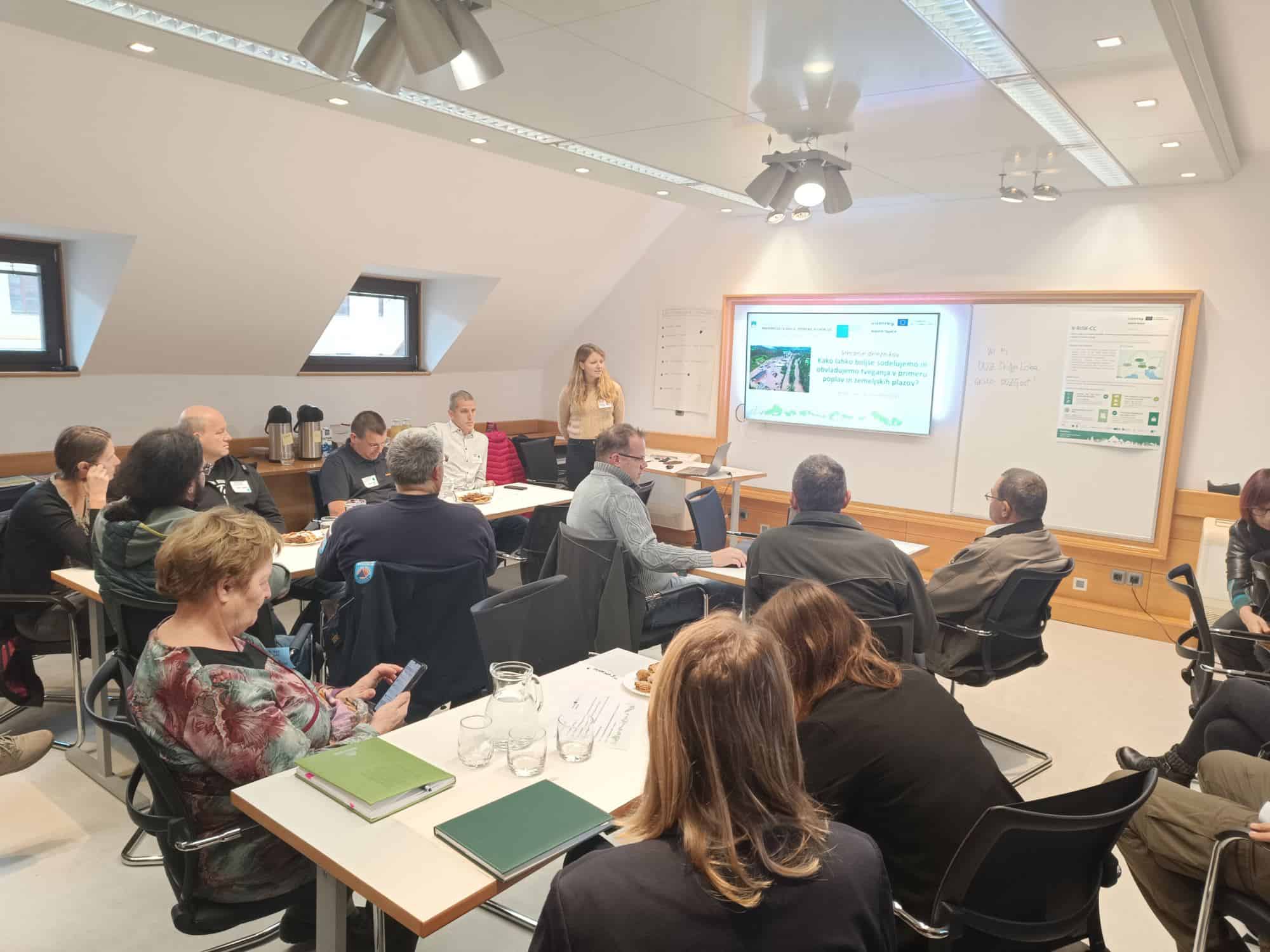On Tuesday, November 14th, 2023, the Development Agency Sora, together with the Slovenian Environment Agency, organized a meeting in Škofja Loka on the topic of better collaboration and risk management in the case of floods and landslides. The event was attended by key representatives from both local and state organizations: municipal commanders of Civil Protection, representatives from Fire Brigade Command, the municipalities of Škofja Loka, Železniki, Gorenja vas – Poljane, Žiri, the Directorate of the Republic of Slovenia for Water, the Agricultural Institute of Slovenia (OE Kranj), the Forest Service of Slovenia (OE Kranj), and the Fishing Society Škofja Loka actively participated in the event.
Andreja Sušnik from Slovenian Environment Agency and Anita Pokorn Oman from the Development Agency Sora presented the key challenges addressed within the X-RISK-CC project, aiming to improve collaboration between the state meteorological and hydrological service and municipal units of Civil Protection. The process of prediction and notification in the case of extraordinary events was explained by hydrologist Andrej Golob from Slovenian Environment Agency. Following this, the commander of Civil Protection of the municipality of Škofja Loka, Nikolaj Kržišnik, presented the complex background and commendable actions during last year’s August floods, earning applause from all attendees.
An interactive workshop followed, where participants shared diverse experiences in managing August floods and landslides. They highlighted key challenges they face in their work and proposed solutions to improve collaboration among involved institutions. Participants identified the following challenges:
- Ensuring continuous regulation of watercourses and riparian vegetation due to the significant additional problems caused by unregulated banks of watercourses and inappropriate storage of wood and hay along watercourses.
- Most participants agreed that for better watercourse conditions, the management of watercourses should be transferred from the national to the regional or local level, with financial support for these activities, including constant and up-to-date field control.
- Counter-flood barriers, retaining walls, and certain floodplain areas could contribute to greater flood safety.
- Warning maps indicating the danger of extraordinary events are designed regionally; local responses would need more precise data, especially regarding flow rates in smaller streams.
- For informing professional services during extraordinary weather events, information via text messages (SMS) was presented. Participants suggested that information for the general public is often too technical and needs more straightforward explanations.
- It is necessary to strengthen public awareness of the use of meteorological/hydrological data, forecasts, and warnings. Local-level campaigns and cyclical education could contribute to greater awareness.
- The network of measuring hydrological stations could be enhanced with smaller analog measuring stations, which are a good solution in case of a system outage.
- The capacity and reliability of the Regional Information Center need to be strengthened; it ceased operation due to excessive workload during the recent floods. Participants unanimously agreed that mutual communication between field services and the Slovenian Environment Agencyis crucial both before and during an extraordinary event.
- Inter-sectoral collaboration, especially at the national level, is lacking.
- Overall, despite coming from diverse institutions at the local level, stakeholders collaborate very well and are well acquainted with all local dynamics, crucial for effective management.
With climate change, the frequency and intensity of extraordinary weather events are increasing. Flash floods in the Sora watershed are characterized by being short-lived and extremely powerful. In such cases, there is little time for action or evacuation, making prevention crucial. The workshop findings will greatly assist in planning further flood management along with landslides and other extraordinary weather events.



